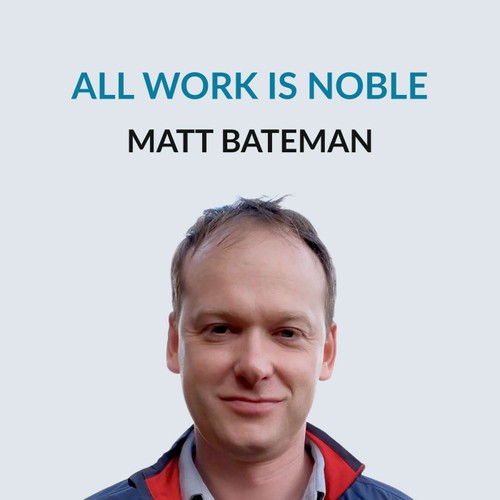
 The Pathless Path with Paul Millerd
The Pathless Path with Paul Millerd #171 "All Work Is Noble," Montessori, and Kids & Work — Matt Bateman on starting growing up with the internet, digital and industrial literacy, studying philosophy and learning how to teach, starting the Guidepost school network, how to train teachers, how children learn and work, values in education, agency, and writing his new book
28 snips
Mar 25, 2024 Matt Bateman discusses his journey from academia to Montessori education, emphasizing the nobility of all work and the importance of agency in education. He explores kids and technology, values in education, and the hidden value systems in schools. Reflecting on his experiences, he offers advice for parents and challenges traditional educational approaches.
Chapters
Transcript
Episode notes
1 2 3 4 5 6 7 8 9
Introduction
00:00 • 3min
Navigating Education and Technology
03:04 • 20min
Fostering Work Values in Children
22:44 • 6min
Reflections on Work Ethic and Societal Values
29:01 • 4min
Reimagining Work Values
33:22 • 6min
Exploring Montessori Education and Alternative Schooling Options
39:21 • 13min
Comparing Literacy Education in Asian Countries to Alphabetic Systems
52:15 • 2min
Rethinking Education for Values and Agency
54:12 • 18min
Insights into the Guest's Work and Online Presence
01:12:38 • 2min
